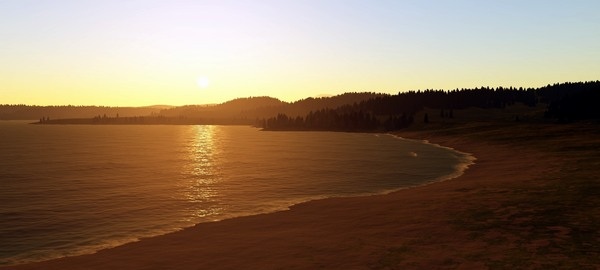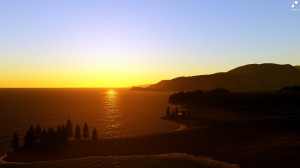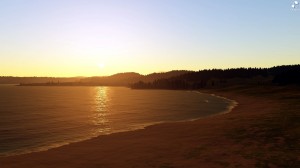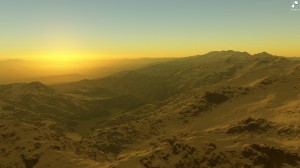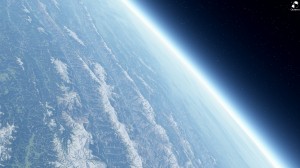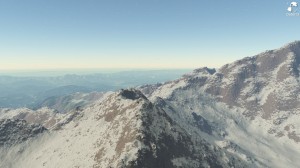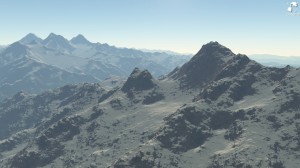Outerra has released the tech demo for their new game engine, the Outerra Engine. This engine is in alpha phase and features a real scale planet Earth that can be explored and is created from real elevation data with resolution 90m where available, 1km resolution for oceans; data are dynamically downloaded as you go. Further refined by fractal-based procedural techniques down to centimeter-level details are being used, while a Vector-based road system that integrates with the procedurally generated terrain is in full action.
The demo contains a few locations around the world (a couple of them were created by our tester Pico). Data for the default location are already included within the installer, the rest of it will be downloaded automatically on demand as you explore the world (note: proxy servers aren’t supported yet for data download). The total size of the data is around 12GB, but normally you’ll download just a fraction of the size, unless you traverse the whole planet surface at a low altitude.
This alpha release comes out to show the potential of the engine, but it still lacks many features commonly found in other engines, and especially the effects are postponed until the major features are implemented.The demo currently comes with just a single biome – northern type forests. There are no rivers and lakes implemented yet, and no weather yet. There are also some driver issues with AMD’s cards.
Those interested can download it from here. You can also find below a video from an old version of this engine!

John is the founder and Editor in Chief at DSOGaming. He is a PC gaming fan and highly supports the modding and indie communities. Before creating DSOGaming, John worked on numerous gaming websites. While he is a die-hard PC gamer, his gaming roots can be found on consoles. John loved – and still does – the 16-bit consoles, and considers SNES to be one of the best consoles. Still, the PC platform won him over consoles. That was mainly due to 3DFX and its iconic dedicated 3D accelerator graphics card, Voodoo 2. John has also written a higher degree thesis on the “The Evolution of PC graphics cards.”
Contact: Email

